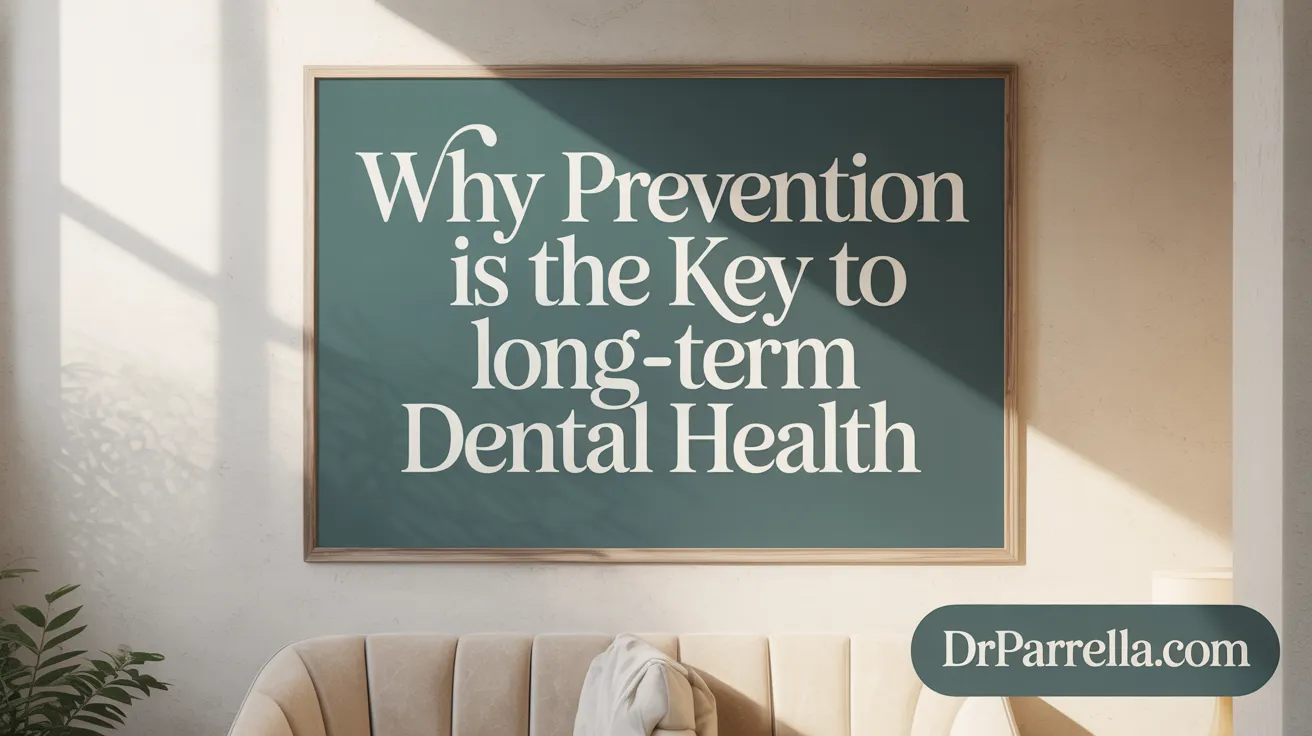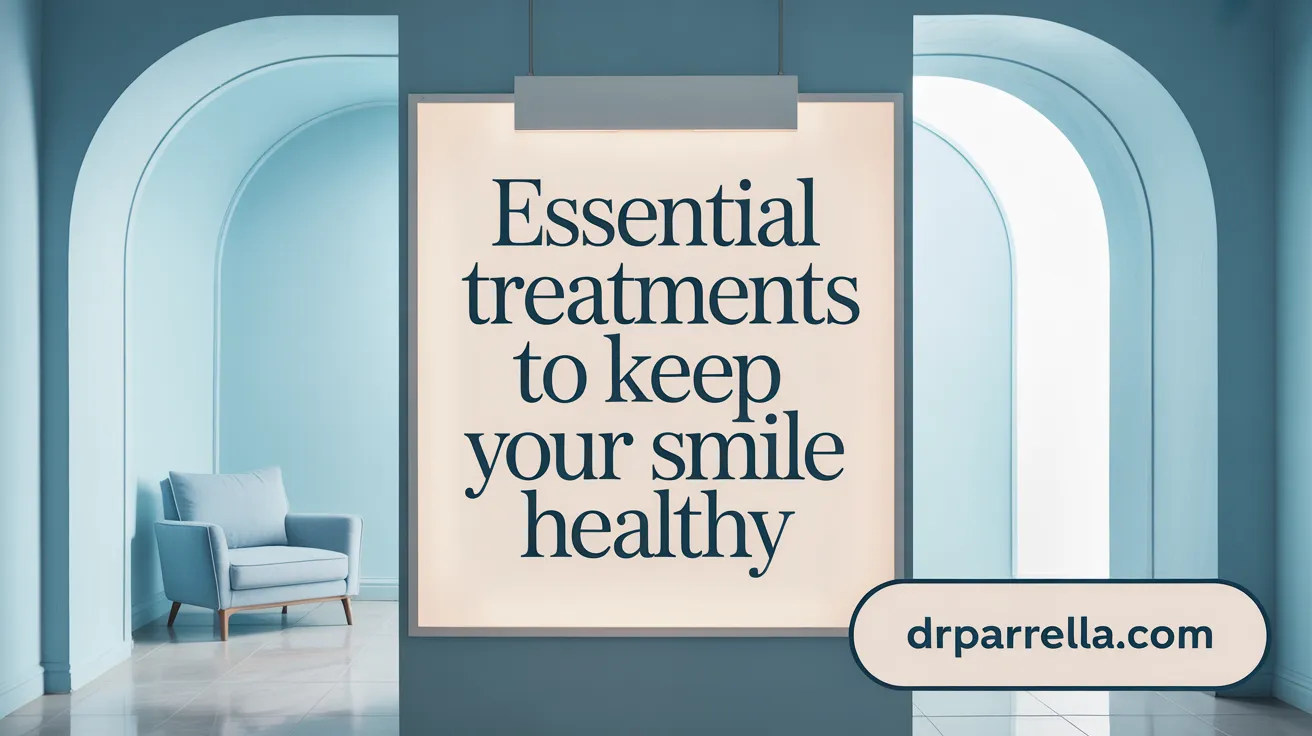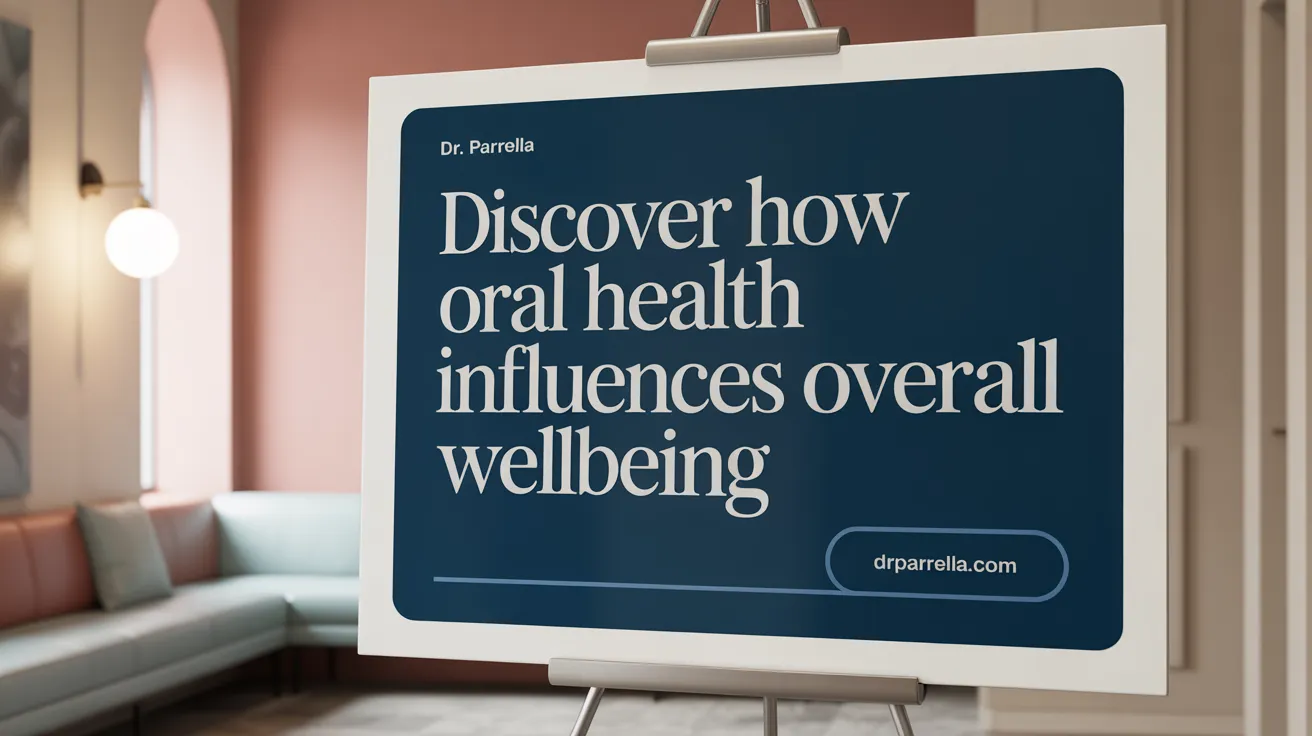Why Preventive Dentistry Matters for Your Health
Preventive dentistry plays a pivotal role in ensuring long-term oral health by focusing on early detection and proactive care. It involves practices and procedures designed to prevent dental problems such as cavities, gum disease, and tooth loss. Beyond preserving the natural function and appearance of your teeth, preventive dentistry significantly influences overall health, reducing risks associated with chronic conditions like heart disease and diabetes. This article explores the key components, benefits, and best practices of preventive dentistry to equip you with the knowledge to maintain a healthy smile throughout life.
<!-- VIDEO:eyJsaW5rIjoiaHR0cHM6Ly93d3cueW91dHViZS5jb20vd2F0Y2g/dj11SVFqYlp3WU0wQSIsImltYWdlVXJsIjoiZGF0YTppbWFnZS9qcGVnO2Jhc2U2NCwvOWovNEFBUVNrWkpSZ0FCQVFBQUFRQUJBQUQvMndDRUFBa0dCd2dIQmdrSUJ3Z0tDZ2tMRFJZUERRd01EUnNVRlJBV0lCMGlJaUFkSHg4a0tEUXNKQ1l4Sng4ZkxUMHRNVFUzT2pvNkl5cy9SRDg0UXpRNU9qY0JDZ29LRFF3TkdnOFBHamNsSHlVM056YzNOemMzTnpjM056YzNOemMzTnpjM056YzNOemMzTnpjM056YzNOemMzTnpjM056YzNOemMzTnpjM056YzNOLy9BQUJFSUFGTUFsQU1CSWdBQ0VRRURFUUgveEFBY0FBQUJCQU1CQUFBQUFBQUFBQUFBQUFBQUFnTUhDQUVFQmdYL3hBQTVFQUFCQXdJREJBY0dCUVFEQUFBQUFBQUJBQUlEQkJFRkVpRUdJakZCQnhOUllaS1QwUmN6VTNHQmtSUXlVcUhoYzVUQjBoVkNZLy9FQUJnQkFRRUJBUUVBQUFBQUFBQUFBQUFBQUFBQkFnTUUvOFFBSFJFQkFRQUNBZ01CQUFBQUFBQUFBQUFBQUFFQ0VoRWhBeE5CTWYvYUFBd0RBUUFDRVFNUkFEOEFnMUN0REhTUmZDajhJV3d5aml0N21Qd2hjL1kxcXFzaFd1L0J3NWZjeCtFSnlHamh5KzVqOEFUMkdxcHFGYmtVY1B3WS9BRXNVY1B3WS9BRTlocXFHaFcrRkpEOEdQd2hjM3R6WFI0WmhraklhZGhrZXduUm5BS1h5OFJaaHpWWlVMb3FpR3BySmpKMVoxT2xob0IyQmUxaG15bFRLd1BlMjErU3Q4a2s3YW5pdHZUZzBLWHFMWTZJV01nSHlJU3NSMldZMkUvaGcyNEdvTGVLejdvdDhQSDFENkYwdUkwc2xOS1kzc3RidGFsVWRVMkV3c0RRQUgzSnR4RnRWMDJZMWN3aFRwc0xVUVFTTmF6SjFNdW5BRVh1ZFB1cEovRFFFZTVqOEFXWjVDNGNLaElWdW5Va1B3WS9BRTAra2crREg0QW02YXFsSVZzRFNRMzl6SDRRc0s3bXBiSTAreGlHaXllYTFjV3lTemRUa1RkMURodXB5TWFCQmxyVW9OV1FsQUlyRmx5bTJGQzZTcXBwM2IwVGc1am04dTBMcmdGbzQzQUpzT2w1bG96Qlp5bk1heHZGUnIrRnA0WFdqaWFBT0FzdHlDUU5zQUFPNWFsU1MyUWhJamtJc3VFZXI5ajJtU2dwUmFIaGVmRS9TNUtmanJhZHQ0ektDLzhBUzNlSSt5N1J5eW5EejhjMmZiWFV6ZzBOemthRmVEZzNSaGlHSXZNbFpVTW82Y1hJekM3M2kzTGtCM243YzEza1V6YldhQnFlSnRmK0Z2bWNTVUw2S08xNXQzTnhIVjhYajZnRWZVTHZoeEhET1dvM3dOMy9BQjBVb1pSRnhJRHhUdWVTV2dEWGV0eFV2WVBPS3ZES2FkcEpENHdRVHpVV1kzUlZzT0l4TnA1bnRxWkE1eEdiVFEzSi9kU1hzcmNZSFRnaXcxdHBiUzY1L1hieVRIU1dQVElUVGduM0pweTA0R0NOVUpSNHJLRERRbldwdHFjQ3lNbmduWS95cHAzQUoxbjVRaXdzSlNRQ2xBb0ZoWWMwT2FXdUZ3UllvQlFTYkcxcjhrRWE0L1NmZzYyV0ozSTd2ZU9TOHNCNU53eDF1MGpSZFh0TGhFdU13eVBkVVBqa2dhZXNZM1ROYm5vdUFwcWw5UFZpa2pMcDNrbVBxZzY5blcwMStkbGpUdDNuazZQWWhWU3h5Qm9rTFdEODJVYW42OWlicDhjbzZBRis0YzQwYXdhbGRTTm1LaVdETlVPcHk1emJicnJFRDdXSzFhVFlURG9KdXRxQkxVUDQ1VHV0L2IxWGJIRnl5OGtKd0owbFRHWkhDUXVlU1JHQmV5Nk9DRjlLM05PekkrWGNZTzRXSi9lMzdyYm9hZHROR0dSUXNpYU9BYUxMYnFZUlZVK1hUT05XdVBJcXpEanRuMmM5T2Z4dkM1OFNFVDZTb2JCS3cyTWhabTArNFhWMERCRlNSUnROdzFvRisxZVBUdjNpMGdnalFqdlcvaHRTeHNUYWQ3ZzF6ZUJQTUtXTGJmeDZCT2liY2x1dUUyNHFNbXlkVUpKV1VBMHAxcFREU25XbFFLZWRBbldIUUpoNTRKeHAwQ0I2NnlDbWdVb09VVTRDczNTQVZsQWlXRnI4NWJvNXpiRXJrbTRWUzBsUkkrT0ZnbHpITTh0M2lWMkFLODdFS1laK3VBM1QrYjVyVVN0YWxrRE4ydyt5MlQxYnh2a2dmWmVlWFdPWnBCSjBBQ2NNVGkzZmRxZVFLNnh6cDUwbE96UnBjL3VhUDhwUUp0d3l0T291YnBqUEhDeXpoZDNJZHF6Qkk1MTNUQ3pRTGdEa3FoTlRBWTd6NmkyanZ0cC9oYThNN0JHNlFzejVRYmp1U01VclhpaHNOME9jQWZrdk1vNXpKUEhUdEp6U25MOGh6SzVaM3ZoMncvT2E3R2tsYk5Tc2NRUU1vSXZ4QVNYeU5ISXVIZG9tR3k1ZDBETFlXc215NGs4VnF4aVZzZFpGMk9RdGZNMGFFQkNuQ25HdVRnS2dJZExXMHc1VVBrSDFTaDB1YlREL0FLMEhrSDFUU3B0RTl2UEJQTk82RlgzMnViVGRsQjVCOVVzZEwrMUE1VUhrSDFUU215d04xa0ZWOTlzRzFIWlFlUWZWSHRoMm83S0R5RDZxZXVtMFdEQkt5Q3ErZTJIYW45T0gvd0J1ZlZIdGgycC9UaC85dWZWWDEwMldFekpZWVhDNUF0MzhGWGtkTWUxSU44dUhuNTA1L3dCa1Q5TWUxVTRzOFVGdTZBLzdKcFRhSnN4Q2o2a2w0RzY0OHVTMWhNN0xselc3MUN4Nlc5cUNMRjFIYnM2aytxYVBTbHRFN2kyaDhqK1ZxU3hMWlUzQm80blh2U3BKV3h4bk02elFOU2VTZzRkS08wUTVVZmtuMVdyaVhTRmptSlFkVFVpbHkzRGhsaklJSStxMTJuU1ZNUnhGK0lWTGFQRDI5WWVWOUIzdVBjdll3aWdiUU1MbnY2eW9lTFBrNWZJZHlnbWgyenhlaHFtMU1KZzZ4clMzZVpjV1AxWHFEcFIyaUhLaThrK3F6TVB0Ynl5K1Q4VGk2ZktSZlczRmJHY0Z0eG9vRlBTZnRDVGNpajhrK3FXT2xUYU1DMXFLMzlBK3F2REVxWTZ1c0xaaUc4QWhRcTdwSng1eEpJbzduL3hQcWhPRGx4cUVJV2tDRUlRQ0VJUUNFSVFDRUlRQ0VJUUNFSVFDRUlRQ0VJUUNFSVFmLzlrPSIsInRpdGxlIjoiUHJldmVudGl2ZSBEZW50YWwgQ2FyZSBNYXR0ZXJzIHwgRGVudHNwbHkgU2lyb25hIiwic25pcHBldCI6IldlIGFza2VkIGNsaW5pY2lhbnMgZnJvbSBhcm91bmQgdGhlIHdvcmxkIHdoeSBQcmV2ZW50aXZlIERlbnRhbCBDYXJlIG1hdHRlcnMgdG8gdGhlbSBhbmQgdGhlaXIgcGF0aWVudHMuIExlYXJuIGhvdyB0aGUga2V5IHRvIGJyZWFraW5nIHRoZSAuLi4ifQ== -->Understanding Preventive Dentistry and Its Importance

What is preventive dentistry, and why is it important for maintaining long-term oral health?
Preventive dentistry involves a variety of practices aimed at protecting and maintaining healthy teeth and gums over a lifetime. It includes regular dental check-ups, professional cleanings, fluoride treatments, dental sealants, and proper daily oral hygiene routines such as brushing and flossing. The primary goal is to catch dental issues early before they develop into more serious problems like cavities, gum disease, or tooth loss.
Regular visits to the dentist allow early detection of problems that might not be visible or painful yet. Professional cleanings remove plaque and tartar—sticky deposits of bacteria—that lead to tooth decay and gum disease. Fluoride treatments strengthen enamel, while sealants protect vulnerable chewing surfaces of molars from decay.
Maintaining good oral health is crucial, not just for a bright smile, but also for overall health. Poor oral hygiene has been linked to systemic conditions such as heart disease, stroke, and diabetes. Preventive dentistry emphasizes education and habits that support lifelong oral wellness, reducing the need for invasive and costly treatments later on.
Access to affordable preventive care, especially for children and high-risk groups, helps reduce health disparities. Overall, preventive dentistry is vital in preserving natural teeth, ensuring oral functionality, and supporting overall systemic health.
Key Procedures in Preventive Dentistry
 Preventive dentistry involves a combination of professional treatments and daily habits designed to keep your mouth healthy and avoid future dental problems. Regular dental exams and professional cleanings are crucial, typically scheduled every six months, to identify early signs of cavities, gum disease, and other issues. During these visits, dentists use diagnostic tools like digital X-rays, which provide detailed images with less radiation, to detect problems that might not be visible to the naked eye.
Preventive dentistry involves a combination of professional treatments and daily habits designed to keep your mouth healthy and avoid future dental problems. Regular dental exams and professional cleanings are crucial, typically scheduled every six months, to identify early signs of cavities, gum disease, and other issues. During these visits, dentists use diagnostic tools like digital X-rays, which provide detailed images with less radiation, to detect problems that might not be visible to the naked eye.
A vital part of preventive care is applying fluoride treatments and dental sealants. Fluoride helps strengthen tooth enamel and can reverse early decay, offering a chemical barrier against cavities. Sealants are particularly beneficial for children; they are thin coatings applied to chewing surfaces of molars and premolars to seal deep grooves, preventing bacteria and food particles from causing decay.
At-home routines complement these professional procedures. Brushing twice daily with fluoride toothpaste, flossing daily, and using fluoride mouthwash are essential behaviors that help remove plaque and prevent bacterial growth. Maintaining a healthy diet low in sugary and acidic foods also plays a significant role in prevention.
In addition, preventive measures include wearing mouthguards during sports activities to protect teeth from injury and quitting tobacco products, which significantly reduce the risk of gum disease and oral cancers. Regular check-ups allow early detection of issues, avoiding more complex and costly treatments later.
Overall, these preventive measures, both in-office and at home, are fundamental in preserving natural teeth, minimizing dental expenses, and supporting overall health and well-being.
At-Home Oral Hygiene Practices for Effective Prevention
Maintaining good oral health starts with proper oral hygiene techniques that are easy to incorporate into daily life. The foundation of effective oral hygiene involves brushing your teeth twice a day with fluoride toothpaste. Use a soft-bristled toothbrush positioned at a 45-degree angle toward the gums, and gently move the brush in small circular motions. Each session should last at least two minutes to ensure all tooth surfaces are thoroughly cleaned.
In addition to brushing, daily flossing or using interdental brushes is essential for removing plaque and food particles trapped between teeth and along the gumline where toothbrushes can't reach. This step helps prevent cavities and gum disease. For extra freshness and bacteria control, brushing the tongue or scraping it gently can significantly reduce odor-causing bacteria.
Using an antibacterial mouthwash, preferably alcohol-free, complements brushing and flossing efforts by reducing harmful bacteria that contribute to plaque buildup and bad breath. A balanced diet low in sugary foods and drinks further supports oral health. Avoiding tobacco products is also crucial, as smoking increases the risk of gum disease and oral cancer.
Drinking fluoridated water helps strengthen enamel and prevents decay. Regular dental visits, ideally every six months, allow for professional cleaning and early detection of potential issues, ensuring your smile remains healthy and bright.
The Benefits of Preventive Dental Care for Oral and Overall Health
 Preventive dental care plays a vital role in promoting both oral and overall health by actively reducing the risk of developing common dental issues such as cavities and gum disease. Routine check-ups, professional cleanings, fluoride applications, and sealants are essential procedures that help keep teeth and gums healthy while detecting potential problems early. These early interventions prevent minor issues from progressing into more complex and costly conditions.
Preventive dental care plays a vital role in promoting both oral and overall health by actively reducing the risk of developing common dental issues such as cavities and gum disease. Routine check-ups, professional cleanings, fluoride applications, and sealants are essential procedures that help keep teeth and gums healthy while detecting potential problems early. These early interventions prevent minor issues from progressing into more complex and costly conditions.
There is a well-established connection between oral infections, particularly periodontal disease, and systemic health conditions like heart disease, diabetes, respiratory infections, and pregnancy complications. Maintaining good oral hygiene minimizes oral inflammation and bacterial spread, which can impact other parts of the body. Detecting signs of oral disease during dental visits can also serve as an early warning system for broader health problems, enabling prompt medical response.
In addition, preventive care helps in reducing overall healthcare costs by lessening the need for extensive treatments such as root canals, extractions, or surgeries later in life. Enhanced oral health contributes to a higher quality of life, as it supports functions like speaking, chewing, and smiling comfortably. Immunizations, sealants, and lifestyle counseling further enhance protection against diseases like oral cancer and HPV-related cancers.
Access to consistent preventive dental services, especially for vulnerable populations, ensures lifelong health benefits. By emphasizing good hygiene practices, timely screenings, and modern preventive technologies, individuals can enjoy healthier teeth and gums along with a reduced risk of systemic diseases, ultimately leading to better health outcomes and a more vibrant, confident life.
Tailored Preventive Dental Care Across Different Age Groups

Are there specific dental care recommendations for different age groups such as children, adults, and seniors?
Yes, preventive dental care varies according to age to optimize oral health at every stage of life.
For infants and young children, maintaining oral hygiene involves gently cleaning the gums with a soft cloth and avoiding sugary bottles that can cause early decay. It’s recommended to schedule the first dental visit by age one, to monitor development and prevent issues.
As children grow, they should start using fluoride toothpaste as soon as their first tooth appears. Regular dental checkups are essential, along with preventive measures like sealants and fluoride varnish to protect their developing teeth from cavities.
Adolescents face their unique challenges, especially if they wear braces or other orthodontic appliances. They need to manage their diet to limit sugary and acidic foods and reinforce consistent brushing and flossing routines.
For adults and older adults, the primary focus is on preventing gum disease, managing dry mouth, and maintaining overall oral function. Seniors may need adaptive tools to assist with their oral hygiene, especially if they experience mobility issues.
Overall, tailored dental care according to age ensures that each individual maintains healthy teeth and gums, reducing the risk of future dental and systemic health problems. Regular checkups, education, and personalized prevention strategies form the foundation for lifelong oral health.
The Vital Connection Between Oral and Systemic Health

How oral infections affect other body systems
Oral infections, especially periodontal disease, do not stay confined to the mouth. They can influence other parts of the body through the spread of bacteria and inflammatory mediators. For example, bacteria from infected gums can enter the bloodstream, traveling to the heart and contributing to conditions like endocarditis—a serious infection of the heart lining. Similarly, oral bacteria can exacerbate respiratory illnesses by being inhaled into the lungs. The chronic inflammation caused by gum disease can also trigger systemic immune responses, impacting overall health.
Impact of periodontal disease on chronic illnesses
Research has shown a strong link between periodontal disease and chronic illnesses such as diabetes and heart disease. In diabetics, gum disease can impair blood sugar control, worsening diabetes management. Conversely, high blood sugar levels can increase susceptibility to periodontal infections, creating a vicious cycle. Likewise, inflammation from gum disease can promote atherosclerosis—the buildup of fats and plaque in arteries—raising the risk of heart attacks and strokes. This connection highlights the importance of maintaining oral health as a vital component of managing chronic disorders.
Importance of integrated care between dental and medical professions
Given the intertwined nature of oral and systemic health, collaboration between dentists and physicians is crucial. An integrated healthcare approach ensures early detection of systemic conditions through dental check-ups, and vice versa. For instance, a dentist noticing signs of inflammation or mouth sores may alert a patient’s primary care provider about potential underlying health issues. Conversely, physicians managing chronic diseases can recommend regular dental visits to prevent oral complications. Such teamwork promotes comprehensive patient care, optimizing health outcomes.
Patient empowerment through preventive dentistry
Empowering patients with knowledge and proactive habits is essential in preserving both oral and overall health. Regular preventive measures—like brushing twice daily, flossing, routine dental visits, and managing risk factors such as smoking or poor diet—can reduce the occurrence of infections that threaten systemic health. Educating individuals on how oral health impacts diseases like heart disease and diabetes encourages healthier lifestyle choices. When patients understand the connection, they are more motivated to maintain their dental hygiene, ultimately leading to a healthier life.
| Aspect | Oral Health Impact | Systemic Outcomes | Collaboration Benefits |
|---|---|---|---|
| Infection Spread | Bacteria enter bloodstream | Bacterial endocarditis, respiratory infections | Early detection and treatment |
| Inflammation | Chronic gum inflammation | Heart disease, stroke risk | Integrated care for prevention |
| Control of Diseases | Mouth health affects diabetes management | Improved blood sugar control | Combined health strategies |
| Patient Role | Daily oral hygiene practices | Reduced risk of systemic diseases | Consistent communication with health providers |
Commit to Preventive Dentistry for a Lifetime of Healthy Teeth
Adopting preventive dentistry practices is essential to maintaining healthy teeth, gums, and overall wellbeing throughout life. Key procedures such as routine dental exams, professional cleanings, fluoride applications, and dental sealants, combined with proper at-home care, effectively reduce the risk of oral diseases and their systemic repercussions. Tailoring care across all age groups ensures that infants to seniors benefit from proactive oral health strategies, fostering comfort, confidence, and function. Regular dental visits and early intervention remain crucial pillars in preventing complex treatments and costly complications. By embracing these evidence-based preventive measures, individuals can preserve their natural smiles, improve their quality of life, and support holistic health for years to come.
